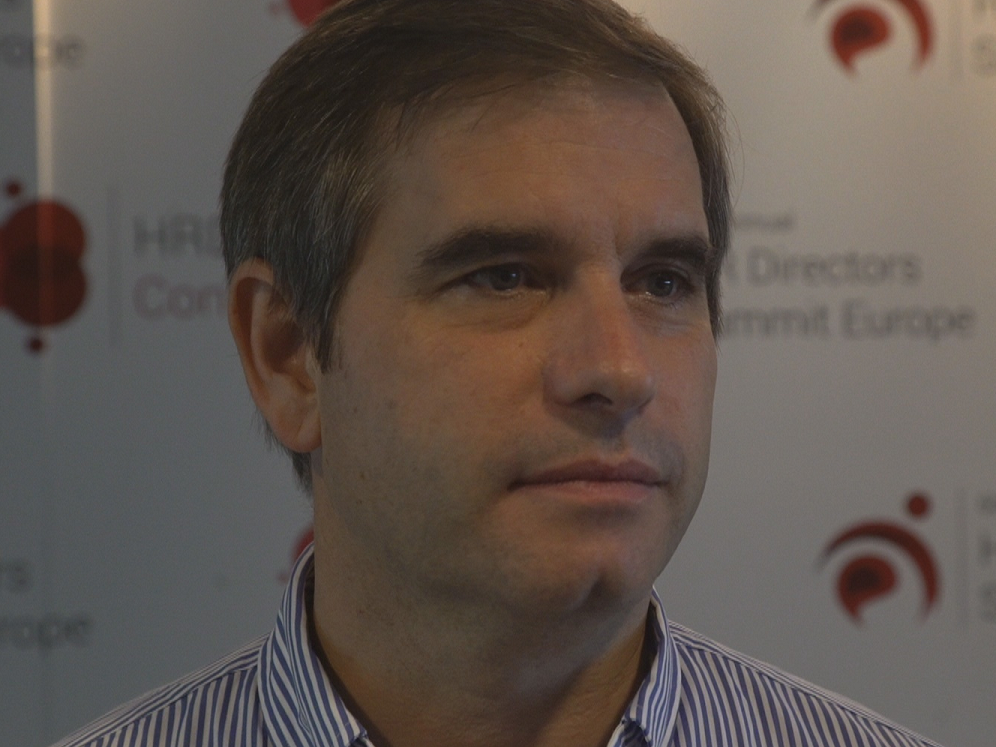What Ebay's HR team is learning from Silicon Valley start-ups
- 6 Min Read
Ebay’s international HR leader explains how technology and start-up businesses have disrupted the traditional function and why HR needs to own the employee experience.
- Author: Owain Thomas
- Date published: Aug 4, 2016
- Categories

Ebay’s international HR leader explains how technology and start-up businesses have disrupted the traditional function and why HR needs to own the employee experience.
Ebay is one of the biggest names in the technology sector and a massive global retailer, but even it is learning from the way some of its Silicon Valley start-up neighbours are working.
Indeed the rate of change is so fast that the 21-year-old company sometimes feels like a dinosaur, explains VP HR International Tom Brown.
“Things are moving extraordinary fast – the agility, the speed, the different organisational dynamics,” he says.
“We’re living in an era of very fast change, and it’s creating opportunities for very new models.”
Technology, of course, is the main driving factor behind these shifts in how businesses are designed, focused and operate – in terms of customers, employees, and internal processes.
Keeping up with the kids
It was not long ago that Ebay was unsettling established retailers itself, so what does Brown see that is different in these new businesses?
“New organisations, the technology start-ups, the Ubers, Airbnb, the Lyft’s, really understand their core competence,” he tells HRD Connect.
“They’re smaller organisations, they’re more agile and anything that’s not core to their business they outsource or buy in as they need to and I think it’s an opportunity for larger organisations to really think about where they need to focus.
“At the same time from an HR functional perspective it’s also changing with the demographics the way that we need to consider employee engagement and treat and develop and reward employees,” Brown adds.
These start-up firms are not only pushing boundaries within the business world, they are also pushing boundaries in the HR world – something Brown appreciates too.
Holistic experience
Improvements to benefits are one step forward, but it is how the role of the HR leader and function is developing that most excites him.
“It’s interesting in that with someone like Mark Levy at Airbnb you’ve got a CHRO who is actually called the global head of employee experience and he has all the facilities and anything that touches the employee experience roll up to him. So it’s a much more holistic experience than perhaps historically it’s been,” Brown says.
This arrangement is something he believes should become more common and should be a focus for growing the HR function and developing employees.
“HR has to really own the employee experience,” he continues.
“We tend to get quite siloed if we’re not careful and focus on one small part of the employee population. I think we’ve got to deliver a fantastic experience which gives meaningful work to everybody and anybody in the organisation.
“One of the things that we talk about in Ebay is moving away from potential to readiness – readiness being much more in that moment in time when someone is ready for the next role, because we believe everyone has huge potential.
“Most of which as a corporation we won’t tap into and that’s ok, but we want to tap into as much as we can and we want to keep developing and pushing our employees as much as they want and as much as we want,” he adds.
Download the full interview as a podcast with Ebay’s Tom Brown
Business focus
One of the biggest issues driving discussion within the HR industry at present is how well it is recognised and appreciated by other business partners and, perhaps more pertinently, just how it should operate withim organisations.
Criticism from prominent industry leaders such as Ram Charan has been aimed at how business savvy and knowledgeable HR professionals are compared to their peers.
Brown understands this argument and agrees with many of the points.
“The function is not nearly business focused enough,” Brown says.
“If we can’t add business value then absolutely we will be side-lined as a business function. The opportunity is there though.
“There is no function better located in the organisation to ask the questions and to really understand what the core of the business is all about and really drive business performance.”
However, he believes there is a big responsibility from HR practitioners themselves to undertake this development and to target the recruitment processes for their own teams.
“We have to fundamentally change the way that HR thinks about itself – about how we really think about business outcomes,” he continues.
“I don’t think as a function we get the brightest and best coming in all the time. A lot of people tend to fall into HR, and so it’s up to us as HR leaders to go out and get the brightest and best to come and join our function, to present a case where people see it as a compelling organisation to be a part of, and then we will start to move the needle.”
Ebay and Dow predict the future with HR analytics
Perfectly positioned
Brown is concerned about the struggle for HR to achieve credibility within many organisations despite being perfectly positioned to understand the business.
He believes this may be down to learning to ask the right questions and wanting to ask those questions – something that is prized at major consultancies and can bring rapid boardroom respect for young inexperienced people.
But this does not seem to be so present within HR.
“I hate interviewing people in HR because they are terribly good at telling me how nice they really are or all the good they’ve done for people; they’re not terribly good at telling me how the business is actually run and what the drivers are,” he told the European HR Directors Business Summit before speaking to HRD Connect.
“You’ve got to know the numbers you’ve got to know the customers – we should be thinking the same way the chief executive thinks.”
“Sometimes I think we fear in HR to ask those questions to really dig in to the nitty gritty of the organisation.”
Insane idea
However, Brown is not a cheerleader for all of Charan’s theories and ideas. One suggestion in particular, to give the responsibility for compensation and benefits to the finance function, received a very short, direct answer.
“I think it’s a really insane idea,” Brown said, “because if you give someone a hammer everything looks like a nail.
“Finance directors are really good at cutting costs so if we give compensation and benefits to the finance function we’re going to lose out on a lot of fantastic things that are happening. If you look at the health and wellness area, the degree of customerisation, personalisation and employee process is fantastic,” he added.
That interaction between employee and organisation is what HR can do best to help engage and motivate key talent while also pointing the business in the right direction.









